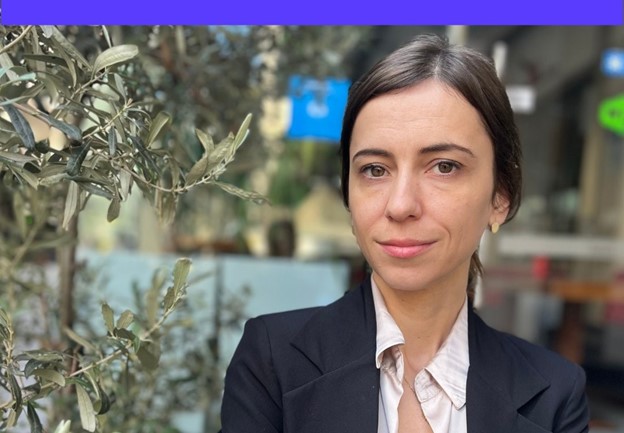Albania – Out of 71 whistleblowing cases reported to ILDKPKI (2017–2022), only 10 have resulted in administrative measures. Meanwhile, 9 whistleblowers have faced retaliation, highlighting the challenges of effective protection.
By Klaudio Agolli
He is like most prison guards working in Albania’s correctional system—tall, with a slightly stern face and a gaze that always seems to want to say something whenever a journalist passes by the high-security prison in Peqin.
Despite his hesitance and skepticism, he chooses to speak about the issues he has faced over the last three years.
“I work as a guard in the Biss 41 prison system, also known as a prison within a prison, where individuals with extensive criminal records are detained. Despite the high risks of this job, I receive no salary increase or better treatment from the Albanian state compared to my colleagues working in less dangerous sectors,” he says, adding that he has not received any financial benefits as promised by the government.
In addition to salary concerns, he points out that Biss 41 officers cannot adhere to security protocols.
“According to regulations, Biss 41 officers must arrive and leave work using different buses than other staff members and must enter the prison individually to ensure their identities are protected. However, this is not enforced due to a lack of necessary transport infrastructure,” he explains, adding that fear of retaliation from prison authorities has prevented him from reporting these issues to state institutions.
Erida Skëndaj, Executive Director of the Albanian Helsinki Committee, says that eight years after the Whistleblower Protection Law was adopted, its objectives remain unfulfilled.
“The law does not provide protection for public whistleblowers when they have reasonable doubts about the reliability of reporting mechanisms,” Skëndaj notes, emphasizing that whistleblowers are particularly distrustful when their reports involve institutional leaders or high-ranking officials like ministers, mayors, or directors.

Erida Skëndaj, Executive Director of the Albanian Helsinki Committee, credits: AHC
A study by the Albanian Helsinki Committee (2017–2022) shows that most whistleblowing cases submitted to the High Inspectorate of Declaration and Audit of Assets and Conflict of Interest (ILDKPKI) come from public sector employees rather than those in the private sector.
“ILDKPKI registered 71 whistleblowing cases, 67 of which were from the public sector, reflecting increased awareness of corruption reporting. However, challenges remain evident, as only 10 cases resulted in administrative penalties, and 9 whistleblowers faced retaliation within their workplaces after reporting,” the report states.
Skëndaj stresses that Albanian whistleblowers lack trust in responsible institutions, often leading them to raise concerns anonymously.
Breaking the silence: Whistleblowers seek refuge in the Media
Ina Allkanjari, an Albanian journalist with over a decade of experience, has frequently received whistleblower reports through platforms designed to protect anonymity.
“In one of my previous workplaces, where investigative reporting was a primary focus, we provided whistleblowers with a platform that ensured their anonymity,” she explains, adding that the issues reported ranged from poor working conditions in garment factories to pressure on public administration employees to disclose their political preferences during election campaigns.
Despite existing state mechanisms for whistleblowers to report workplace issues, many prefer turning to the media, viewing it as a more reliable authority.

Ina Allkanjari, albanian journalist credits: SEENPM
“Whistleblowers need to approach appropriate institutions, including their workplace channels. However, due to the lack of trust and fears of exposure or retaliation, they often avoid formal channels. Instead, they rely on the media to raise their concerns while maintaining anonymity,” Allkanjari notes.
She highlights that the real problem begins when whistleblowers lose trust even in the media.
“Albanian media are often influenced by political or business interests, which means if a whistleblower’s report contradicts these interests, it may never see the light of day. This denies the public the right to information,” she explains.
The most dangerous situation for whistleblowers arises when their identities are disclosed.
“Even when whistleblowers remain anonymous, they fear being identified in a market where media, political, and business interests are intertwined. If their identity is exposed, they risk losing their jobs, facing intimidation, threats, or worse,” Allkanjari concludes.
Systemic challenges
The Albanian Whistleblower Protection Law does not extend protection to public whistleblowers, leading to mistrust that their concerns will be addressed, particularly in cases involving corruption or workplace pressures.
Skëndaj identifies systemic issues, such as the dysfunction of whistleblower offices within public and private institutions.
“The lack of training on whistleblower procedures, unfilled vacancies in these units, and low awareness among employees about the importance of this law are significant problems,” she says.
Furthermore, ILDKPKI, the independent institution responsible for external whistleblowing, struggles to fulfill its mandate due to its primary focus on asset control and conflict of interest oversight.
Meanwhile, in a report published in 2020 by the Albanian Helsinki Committee, it was revealed that many employees in Albania are unaware of the functioning of the law, which has further hindered the reporting of corruption cases in the workplace.
“However, officials and other employees, who are expected to report abusive practices and fraud, have little to no knowledge of this legal mechanism. The AHC highlights that lack of awareness about the law is one of the main reasons for the absence of whistleblowing cases. Many employees who participated in the information sessions organized by the Albanian Helsinki Committee admitted that they might have been aware of suspected corrupt acts or practices but failed to report them, as they had no information about the existence or content of such a law in Albania,” the report states.
It is also noted that every public institution with more than 80 employees and every private entity with over 100 employees is required to establish a unit where whistleblowers can raise their concerns. However, the establishment of these units has not been carried out in a timely manner.
“Monitoring reveals that a significant number of municipalities have not established the responsible unit within the required timeframe. In some cases, delays in creating such units have extended up to three years, as seen in the municipalities of Shkodër and Dibër,” reports the Albanian Helsinki Committee.
The challenges faced by whistleblowers in Albania highlight the deep-rooted systemic issues that continue to hinder transparency and accountability within both public and private institutions. Despite the existence of the Whistleblower Protection Law, its effectiveness remains limited due to inadequate implementation, lack of awareness, and a pervasive mistrust in institutions meant to protect those who expose corruption and abuse. The media has become a crucial outlet for whistleblowers seeking refuge from retaliation, but even this avenue is not immune to external pressures. To foster a culture of accountability, urgent reforms are necessary, including proper training, the establishment of functional whistleblowing units, and the creation of a more transparent and supportive environment for those who dare to speak out. Only through these measures can Albania hope to see real progress in protecting whistleblowers and combating corruption in the workplace.

